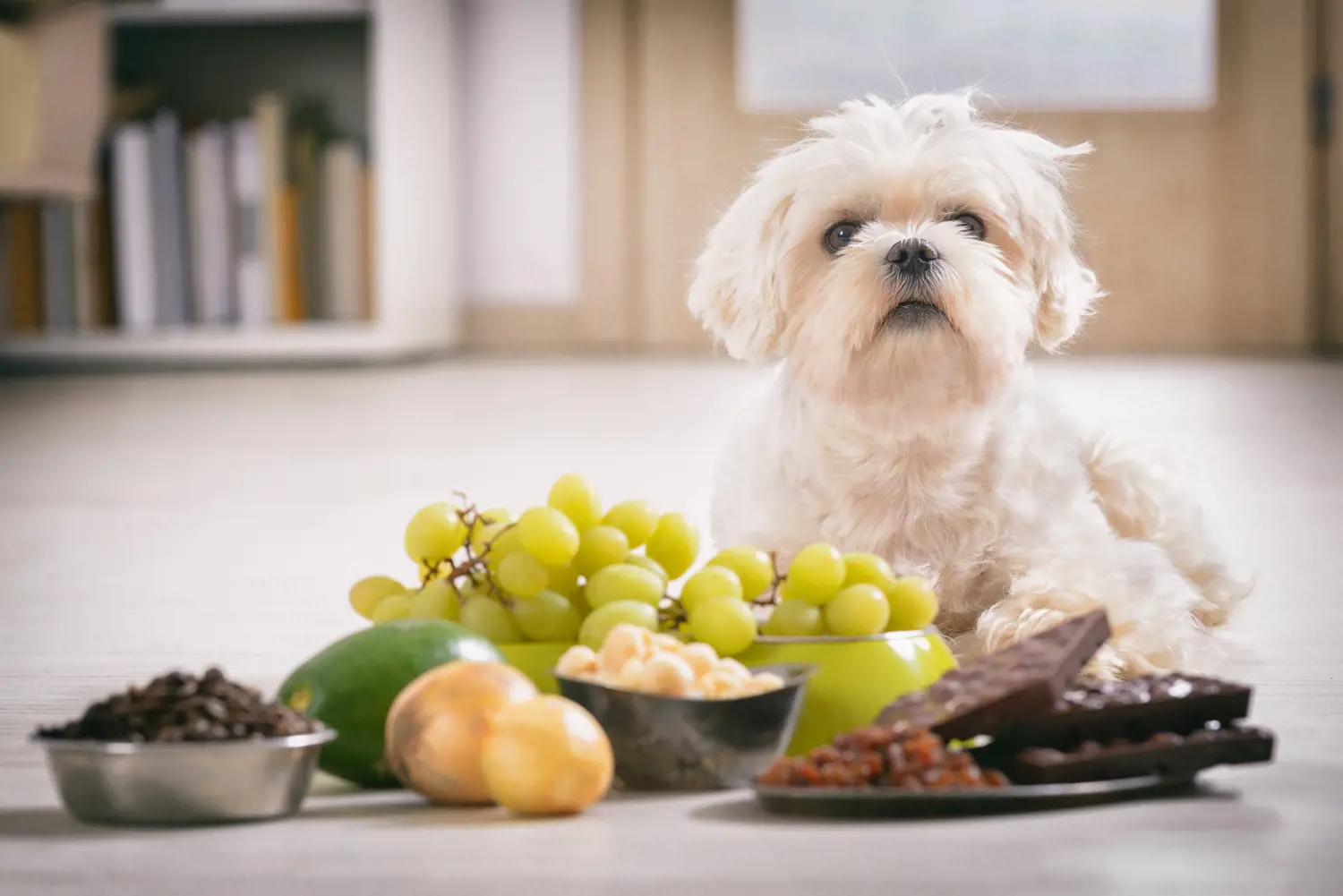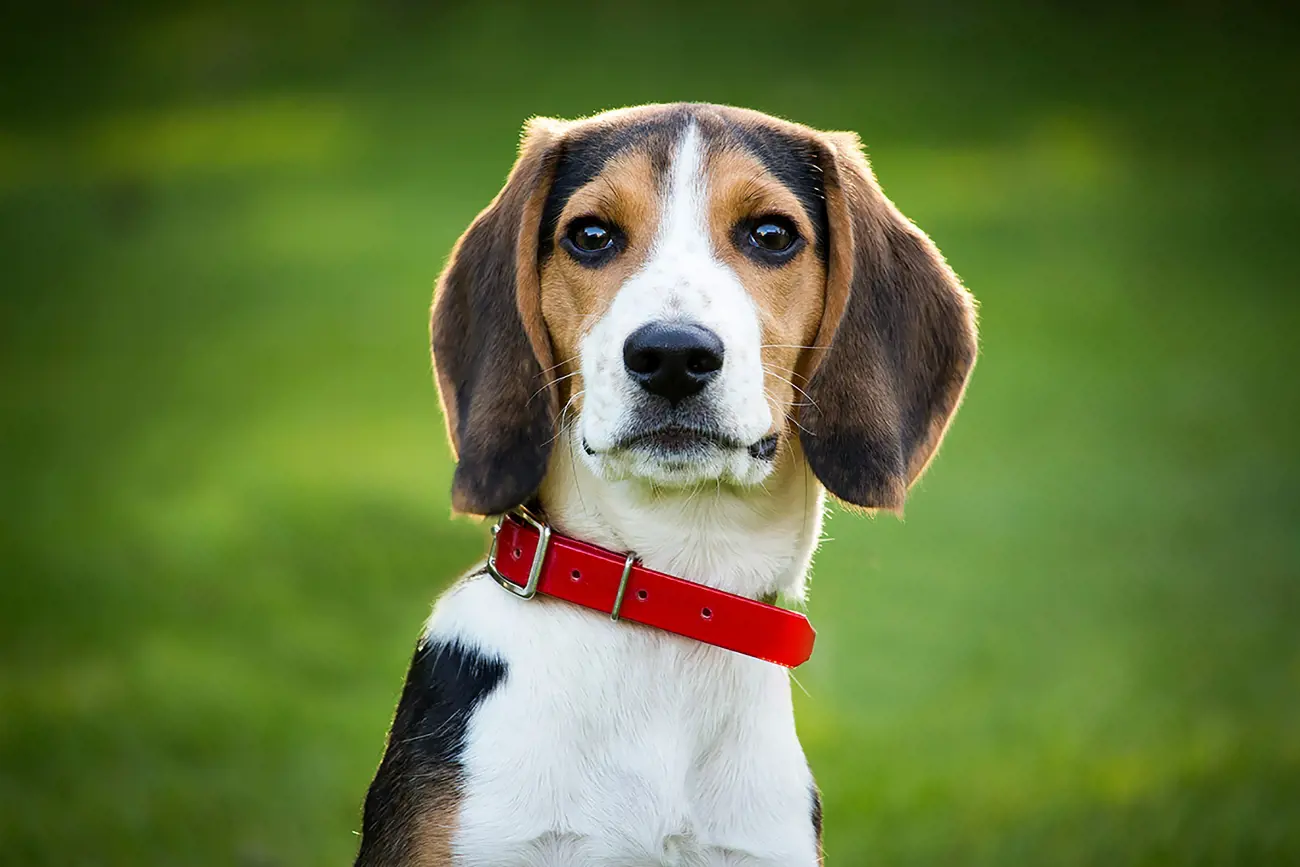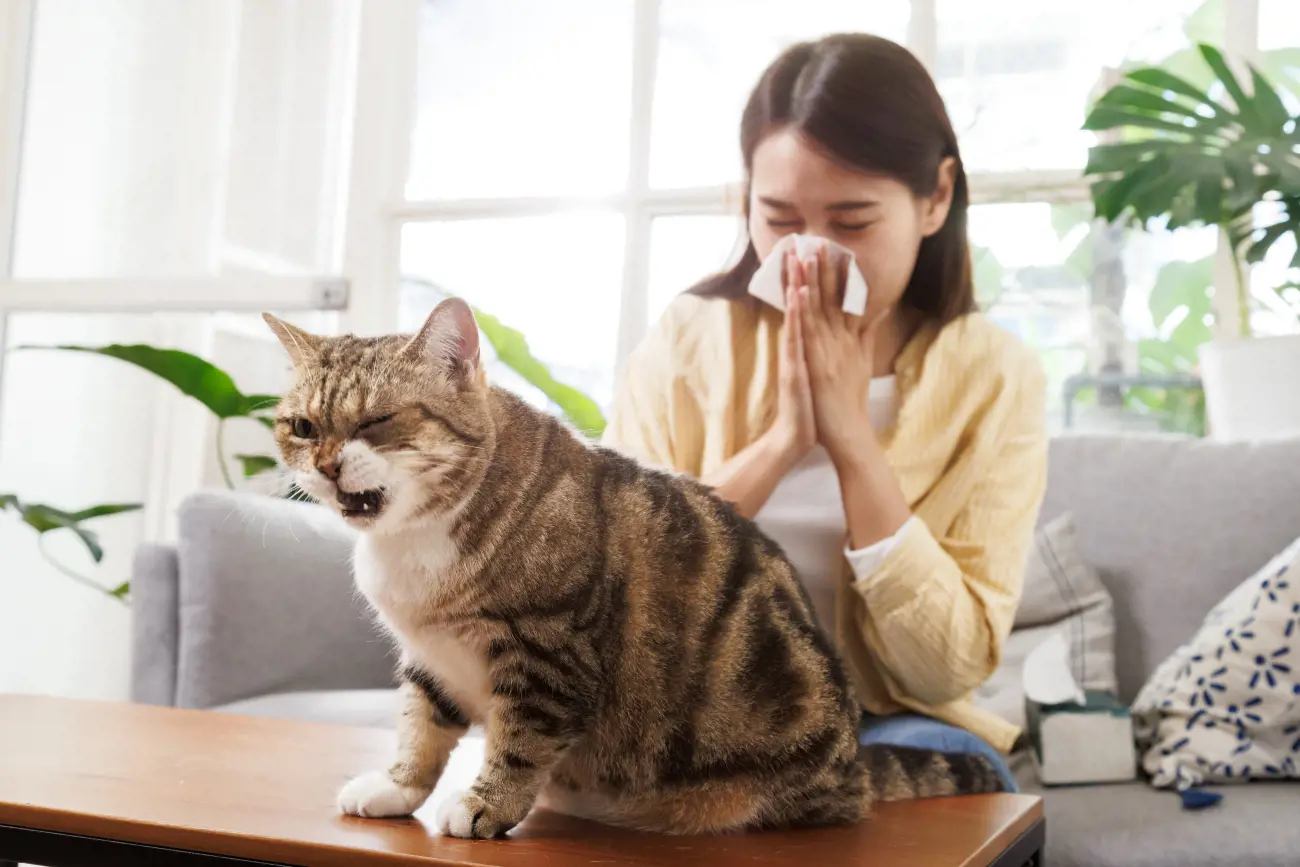Dangerous foods and substances for your dog
24th October, 2022

Dogs can’t wait to get their paws into anything and everything they deem edible, but your home is full of potential dangers to their tiny tums. Read on to discover what is and isn’t toxic for canines around the house.
Did you leave the cupboard unlocked? Did you forget to put away the cleaning products? Keeping harmful foods and substances out of your dogs’ reach is essential, just like when you have children.
As an adult, you know when something shouldn’t be eaten, but our furry friends’ minds work differently. Dogs young and old are inquisitive and always on the lookout for a sneaky snack.
Do you need pet insurance in the UK incase your pooch consumes something it shouldn’t? How should you act? You may need to get help fast, and the right policy can stop you from taking a chunk out of your savings to get your loyal companion the emergency help they need.
Toxic edibles around the house
It might be tempting to pass your pup a scrap from your dinner plate under the table, but you could be doing more harm than good.
The effects of poisoning in dogs differ according to breed, size, and age, with puppies being most at risk. The following foods and drinks we consume on a regular basis can cause a varying degree of danger to canines.
- Alcohol: The smell of certain alcoholic drinks appeals to some dogs, but even the smallest sample can cause a range of symptoms from vomiting, disorientation, tremors and to death in case of severe intoxication left untreated. Alcohol poisoning in pets is particularly prevalent during the festive season as there’s so much of it around.
- Avocado: You might enjoy a bit of avocado on toast, but the entire plant, including the fruit and seed, contains a compound called persin, which is toxic to .
- Caffeine: As a human, you drink coffee as a stimulant. The substance affects your nervous system and heart, and a small sip by your pooch could make them feel very sick. If they get into your jar of coffee grounds, it can cause increased heart rate, excitability or lethargy – it may prove fatal if ingested at a high dose.
- Chocolate: Most smart pet owners know the damage this human treat can do to their dogs. Cacao seeds contain methylxanthines and are toxic to canines. In extreme cases, your may suffer tremors, seizures, and even death.
- Citrus fruits: Every part of these zesty fruits is bad for pooches and eating a large amount could mean your pet develops central nervous system depression.
- Cooked bones: They splinter inside your tum and can eventually cause fatal perforation in their stomach.
- Dairy: Unlike us, dogs don’t produce the lactase enzyme. This makes it hard for them to digest any form of dairy, causing them to experience an upset stomach if they do. Too much dairy can also lead to obesity due to the high fat content.
- Grapes: Another famed food that poisons canines is grapes. Quickly after consumption, your pet may suffer liver damage and kidney failure. Raisins – the dried version of a grape – hide in many cereals and biscuits, making it easy to give them to your dog by mistake.
- Nuts: A handful of nuts for your pet at the pub might seem like a generous gesture, but they can experience a host of stomach issues as a result. Macadamia nuts are especially bad and affect your nervous system.
- Onion and garlic: What might seem like harmless cooking ingredients are toxic to dogs because of the thiosulphate compound. may experience anaemia and red blood cell damage because of being fed food with these hidden dangers in the sauce.
- Raw meat and eggs: Salmonella and E. coli both pose a threat to your pet from these foods, which could make them seriously ill. Hence this applies to raw bone too
- Salt: You know salt is bad, and it can cause sodium ion poisoning in your dog. They may experience vomiting, depression, and seizures as a result.
- Xylitol: If you try to avoid sugar, you may find your food is packed with this sweetener. Unfortunately, if your dog finds your treats, it could prove fatal.
- Blue Cheese & Mouldy food: These are toxic to pets and can lead to tremors.
Do you need pet insurance in the UK? Purely Pets can give you a quick quote in minutes, meaning you don’t have to delay taking your precious pooch to the vet in an emergency.
Toxic substances around the house
It’s not only your pantry that your dog might try to sneak into. When you’re upstairs having a shower or while your pup is home alone during the day, their inquisitive minds start searching for anything to keep them busy.
Chewing the cap off your bleach bottle or munching on batteries might seem like fun to your pet and is completely natural behaviour, especially if it’s a puppy or adolescent, but it comes with serious consequences.
Keep the following things out of your dog’s reach at all costs.
- Antifreeze: This common household item tastes good to our beloved pets but contains the toxic chemical ethylene glycol, which is poisonous. The effects come on quickly and lead to death if you don’t act fast.
- Battery acid: Leaving old batteries lying around can cause a variety of gastrointestinal issues if your dog tries to chew them, including eating through their skin and digestive tract.
- Bleach: The fumes from this substance are harmful by themselves, and it can cause a lot of stomach trouble if eaten.
- Drain cleaner: This product also causes a lot of gastrointestinal upset when ingested and the fumes may cause harm, especially if your room isn’t well
- Drugs: Both prescription and illicit drugs are extremely harmful for dogs. The toxicity effects depend on how much your dog ingests and the type of drug but can easily be fatal.
- Fertiliser: If your dog spends a lot of time in the garden, be careful of what you leave lying around. Canines may experience skin and foot irritation if they walk on fertiliser, and it can cause more serious issues if eaten.
- Glue: Any type of glue is bad for dogs and can lead to skin and mucous membrane irritation and poisoning.
- Household cleaners: All your bathroom, kitchen, and household cleaning items pose a danger to dogs. They can prove fatal if eaten and cause a lot of damage if they come into contact with skin.
- Kerosene: If your pooch swallows this substance, they can develop aspiration pneumonia. It’s also caustic to their skin and mucous membranes and the fumes are especially harmful.
- Motor oil: Motor oil causes a lot of damage to canine’s skin and can kill your beloved pet if they eat it.
- Nail polish and remover: These common household items are caustic to your pooch inside and out and emit harmful fumes. The polish can glue to your dogs’ fur, causing them a lot of suffering to remove it.
- Paint and related substances: Any of these contain chemicals and harmful fumes. If paint or varnish dries on your pets’ fur, it’s extremely tough to remove.
- Pesticides: Both dry and wet pesticides are dangerous to your pooch and irritate their mucous membranes, skin, and GI tract. Do you need pet insurance in the UK? The answer is yes if you don’t want to worry about affording big vet bills after an accident with one of these as pet insurance may be able to help with the cost.
- Rat poison: Avoid using this poisonous substance around the house. Unfortunately, rodenticide toxicity is common in dogs as the poison is highly toxic when consumed.
- Rock salt: If you use this to de-ice your drive during winter, think again. Not only does it irritate your dogs’ paws, it can also be toxic when ingested, says the RSPCA.
- Slug and snail bait: highly toxic in dogs and cats - leading to severe tremors and epilepsy like symptoms
Signs and symptoms your dog ate something harmful

How do you know your dog got into something it shouldn’t? The signs of poisoning in our furry friends vary and depend on what they ate and how much. Understanding the symptoms to look out for means you can get your dog the help it needs and fast.
Do you need pet insurance in the UK to treat poisoning? If you have concerns about your pet's symptoms, no matter how serious they seem, it's always best to seek advise from a vet. Purely Pets customers have access to unlimited video calls with qualified vets, 24/7 included with their policy which means you can speak to a vet from the comfort of your own home! With a lifetime insurance policy in place, you can get your furry family member the care and treatment needed in an emergency.
Watch out for these signs of toxicity in your dog:
- Vomiting
- Diarrhoea
- Lethargy and weakness
- Tremors and seizures
- Drooling
- Laboured breathing
- Body temperature rising or falling
- A change in behaviour
- Collapsing
What to do if your dog eats something toxic
A change in your loyal companion’s behaviour is always worrying, especially if they show signs of toxicity. Sometimes, the effects of poison develop immediately, but other times it can take a few days to manifest.
It’s important not to adopt the ‘watch and wait’ approach.
Whether or not you’re 100% sure they consumed something harmful, seek urgent care. There are a few steps to take as soon as you spot the symptoms to help them on the road to recovery.
1. Immediately remove your pet from the potential poison source.
2. Call your vet as soon as possible or the Animal Poison Line on 01202 509 000. Do you need pet insurance in the UK to speak to the vet? No, but if you have a policy with Purely Pets, you can access vet video calls24/7 through Joii Pet Care for quick and efficient advice.
3. Provide as much information as possible about what you think they ingested, how it happened, and how much they ate.
4. Try to stop your pet from grooming themselves if you notice poison on their fur or paws. Use warm water and a mild shampoo to clean it off and wrap them in a towel to dry while monitoring their temperature.
If your vet asks you to come in, take the item or packaging of what you think poisoned them with you. When the vet knows what caused the toxicity, it’s much easier for them to prescribe the right course of treatment.
How to keep your dog safe from harmful substances
Imagine you are baby proofing your home and do the same for your dog. Get down on their level and identify anywhere you think they can access potential hazards.
If you can, lock cupboards and drawers or keep your pet in a part of the house where they can’t have access to them.
Many hazardous substances exist in your garden, too. Put everything away in a locked shed or garage and avoid using rat poison or pesticide outside your outdoor spaces.
Did you know many common plants and flowers can also be harmful to your pets?
Watch out for these in your garden or when on walks:
- Aloe Vera
- Amaryllis
- Chrysanthemum
- Daffodil
- Dogbane
- English Ivy
- Foxglove
- Hibiscus
- Hyacinth and Tulip (Their bulbs are particularly dangerous)
- Hydrangea
- Lilies
- Mountain Laurel
- Philodendron
- Poinsettia
- Rhododendron
- Stinging Nettle
When it comes to food, refrain from sharing your dinner with your pet, however much they try to persuade you. You could be doing more harm than good, and certain toxic ingredients are hidden in sauces and other food items.
Be particularly cautious during the holidays. During Easter 2017, a whopping 62% of vets said they’d seen at least one case of chocolate poisoning, with 13% saying they “treated five or more cases.”
Keep your sweet treats and alcohol out of paw’s reach and tell guests in your home not to give into your dog’s begging ways. Instead, get some healthy canine treats in stock to let them in on the festive fun.
Insure your pup for emergencies like these

At Purely Pets, we understand your dogs’ wellbeing is a top priority and you’ll do everything you can to protect them. Sometimes, though, accidents happen and it’s important to have a plan in place in case of an emergency.
Vet bills can add up, but with a lifetime insurance policy from Purely Pets you can get the care and treatment you need, and fast!
Get up to £15,000 of coverage with a lifetime policy for your beloved sidekick and have access to unlimited 24/7 video vet calls for expert advice as soon as you notice something’s wrong.
Do you need pet insurance in the UK for your dog? Contact Purely Pets today and get a quick quote to protect your furry friend.
Frequently asked questions
What safe foods can a dog eat?
Dogs are a part of our family and we always want to ensure they have the best care, including a balanced diet. Dogs also have different dietary needs compared to humans, but there are several human foods that are safe and potentially healthy for dogs to eat.
Lean meats
Lean meats such as chicken, turkey, and fish are packed with high-quality protein which is essential for dogs. This type of meat is easily digestible and helps with muscle building and repair. However, make sure it's cooked properly and free from any bones and seasoning.
Fruits
Fruits like bananas, apples, blueberries, and watermelon can also be given to dogs. They are low in calories and fat, but high in vitamins and minerals. However, seeds, stems and leaves should be removed as they can be harmful to dogs. Grapes should be avoided as they can be harmful to dogs.
Vegetables
Vegetables like carrots, cucumbers, and green beans can also be included in a dog's diet. They are a great source of vitamins K, A, and C as well as fibre which aids digestion. Cooked sweet potatoes are also a favourite among many dogs due to their sweet taste and the fact that they are an excellent source of dietary fibre, vitamin B6, vitamin C, and beta carotene.
Always remember to introduce these foods gradually into your dog’s diet to avoid any gastrointestinal upset. It's also important to note that these foods should not replace a balanced diet specifically designed for dogs. Always consult with your veterinarian before adding new foods to your dog's diet. The key is to provide a balanced diet that meets your pet's nutritional needs for a healthy and active life.
What is a safe and healthy treat for dogs to eat?
As a dog parent, it's always thrilling to see your furry friend's tail wagging in anticipation of tasty treats. But not all treats are created equal, and it's crucial to ensure what you're feeding them is not only tasty but also a safe and good healthy treat for dogs to eat.
One of the best options is fresh fruits and vegetables. Apples, carrots, and cucumbers are excellent choices, they are low in calories and high in nutrients, making them an ideal snack. Just be sure to remove any seeds or pits first, as these can be harmful. It is also worth noting grapes should be avoided and can be harmful to your dog.
For those looking to boost their dog's dental health, dental chews are a fantastic option. These treats are designed to clean your pup's teeth as they chew, helping to reduce plaque and tartar build-up.
Is it safe if my dog eats raw meat?
While dogs in the wild do consume raw meat, they also run the risk of encountering parasites and bacterial infections, which are not concerns you want for your beloved pet. Raw meat can carry diseases such as Salmonella and E. coli. On the other hand, proponents of a raw food diet for dogs argue that it is more natural and healthier for them.
However, many veterinarians caution against feeding raw meat to dogs due to the health risks it poses. Raw bones can also pose a choking hazard or cause damage to your dog's digestive tract. It's crucial to remember that domesticated dogs have been eating cooked food for generations, and their digestive systems have adapted accordingly.
Helpful Pages
Recent Posts

Why do Great Danes bury their heads?
12/03/25
Find out more about Beagles
28/02/25Pet Insurance Quote
- 98% claims paid *
- Claims paid directly to vets
- 24/7 vet video consultations
- Interest free monthly payments


